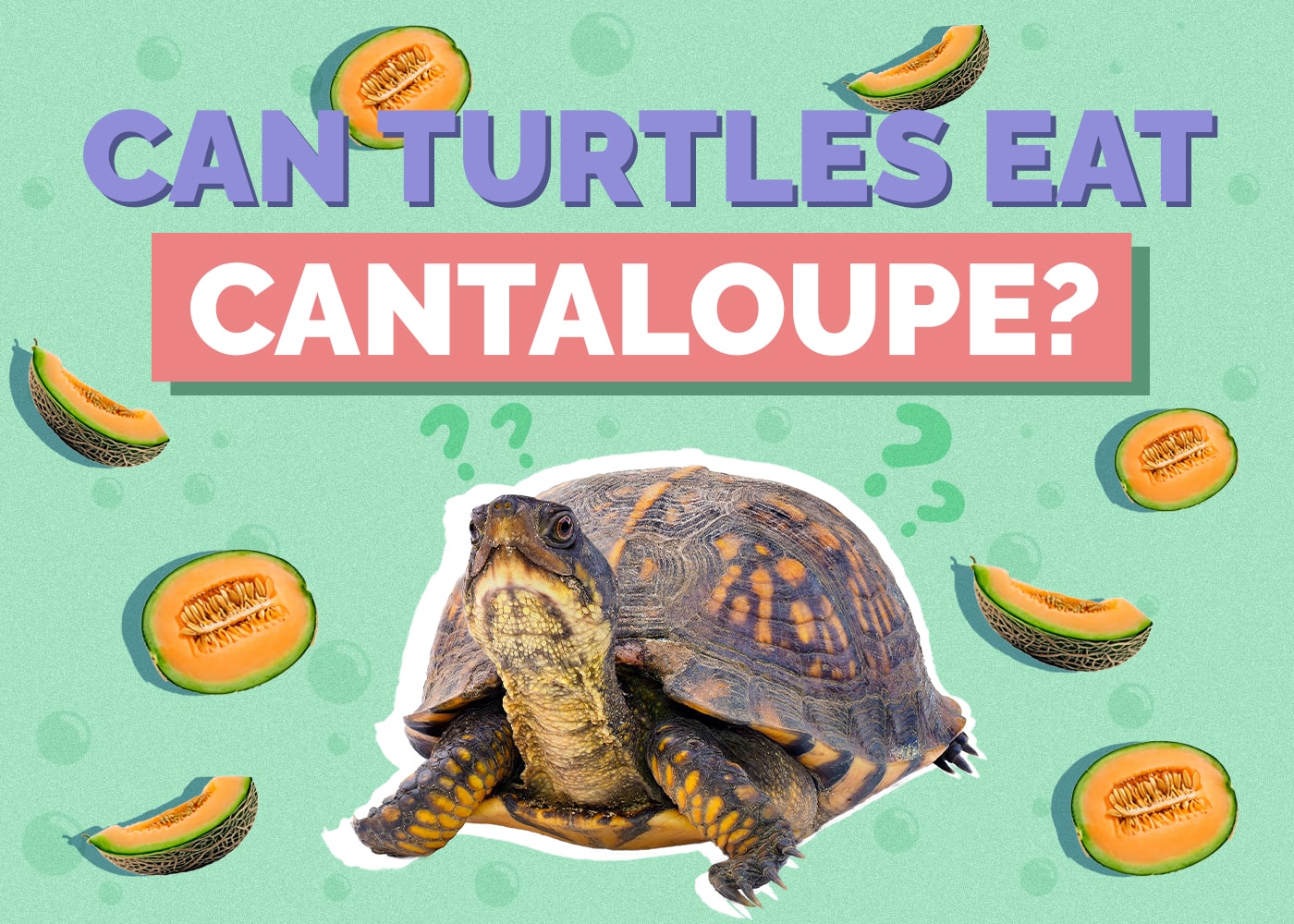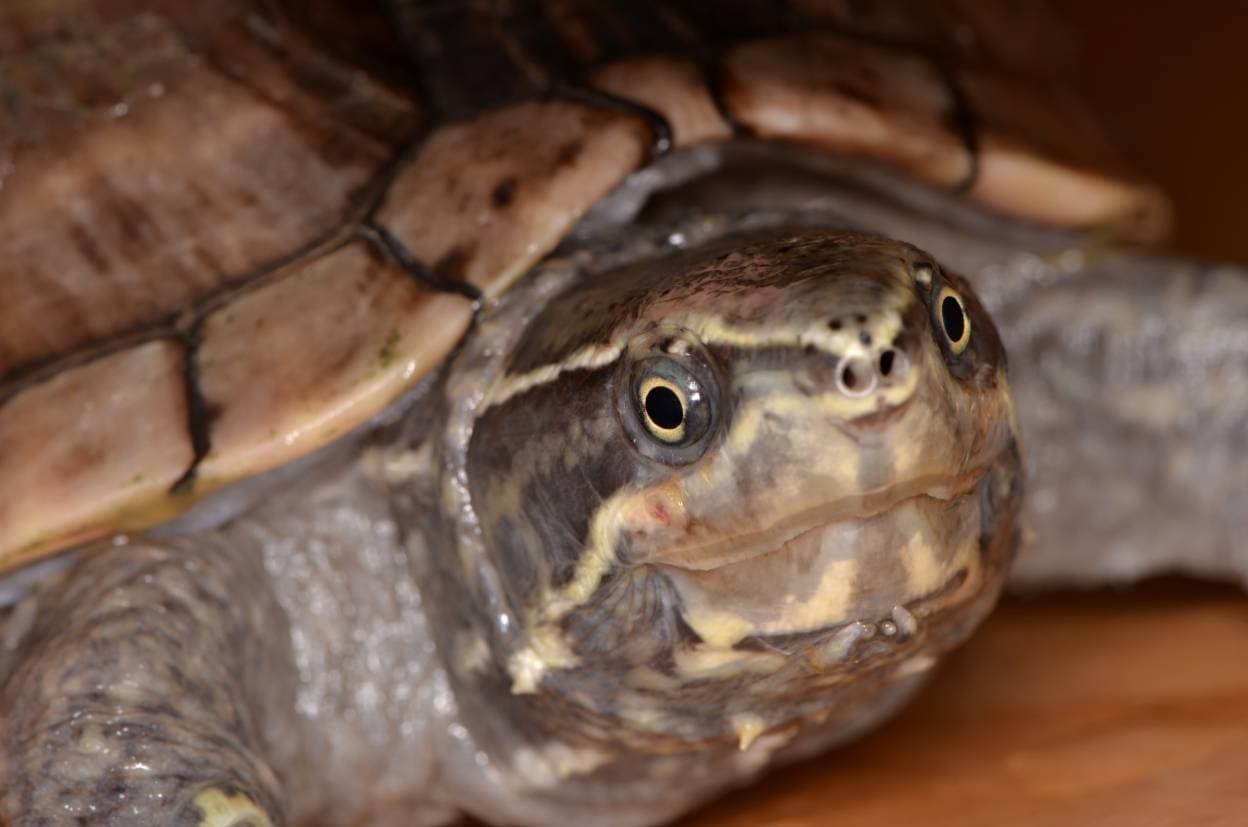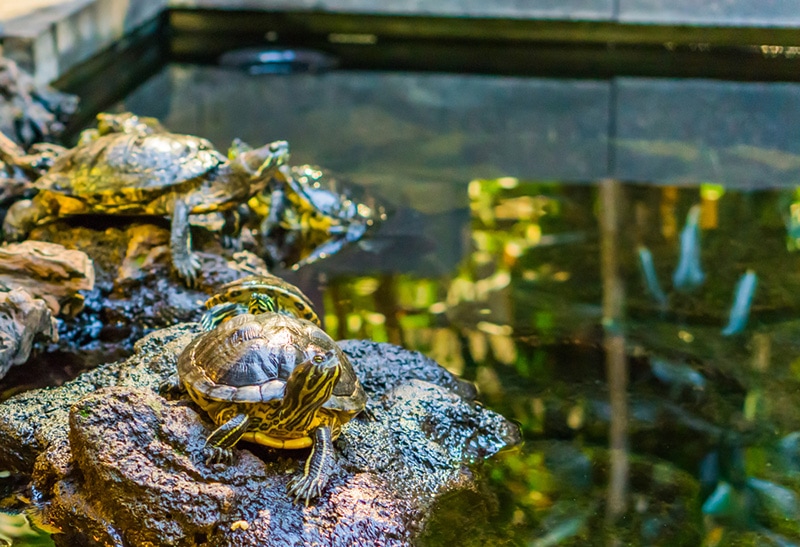Can Turtles Eat Mango? Vet-Reviewed Nutrition Facts & FAQ

By Misty Layne
Updated on
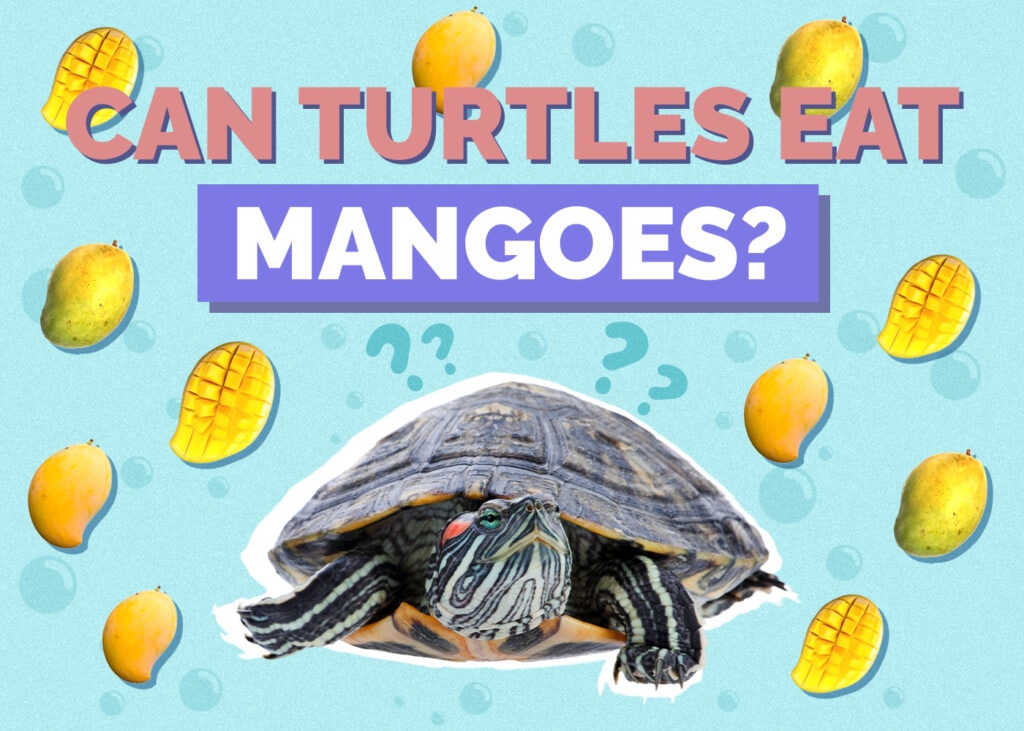
You want your turtle to enjoy a varied diet full of tasty veggies and fruits, but you know you need to be careful with what you feed your pet. Turtles require foods that maintain a 2:1 ratio when it comes to calcium and phosphorus to avoid calcium deficiencies. And some foods with the ideal ratio might be otherwise harmful. One food people are often curious about when it comes to feeding turtles is mango.
Can turtles eat mango? Turtles can have fruits in their diet, so long as you don’t overdo it, but is mango safe for them to eat? It is! Mango is a safe fruit for your pet; however, you don’t want to overdo it on this (or any other) fruit when feeding your turtle.
Here’s a closer look at the nutritional benefits of mango and how to safely give it to your pet.
Nutritional Benefits of Mango
Mango provides your turtle with a variety of minerals and vitamins that can be beneficial. For one, this fruit is high in vitamin C—3/4 cup contains 50% of our daily vitamin C requirement—which helps boost the immune system of your pet. It’s also a good source of vitamin A, which aids in the growth of your turtle and keeps their eyes healthy. And though there’s not a ton of it, there is some magnesium, which is needed for strong bones. You’ll also find some vitamin E in this fruit, which your pet needs to keep their shell growing as it should!
Mango also provides your turtle with a fair amount of fiber. Fiber aids with digestion, which will help prevent constipation in your turtle. It can also keep blood sugar at a steady level, which is particularly beneficial for overweight turtles.
However, mango does have just a tad bit more phosphorus than calcium (17 mg versus 14 mg), so you don’t want to give this to your pet often (and you might want to sprinkle an extra bit of calcium on there when you do let your turtle have it).
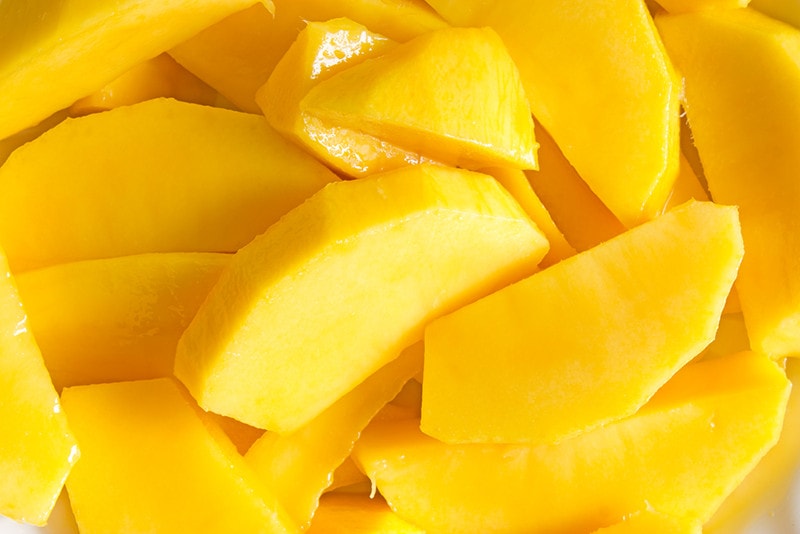
How to Safely Give Mango to Your Turtle
The most important thing to remember when feeding mango to your turtle is that you should always wash it before giving it to them. Any produce you purchase (unless organic) runs the risk of having pesticide residue on it, which can harm your turtle. So, wash any and all produce thoroughly before handing it to your pet!
Next, cut the mango into tiny pieces to reduce the risk of your pet choking on it. You want to give those pieces to your turtle slowly; mango is a bit sugary, and some turtles won’t like it or do well with the sugar, which could lead to stomach upset. If your pet starts to throw up, stop feeding them the mango immediately!
Finally, only give your turtle mango as an occasional treat! Fruits should make up just 10–20% of your turtle’s diet in the first place, and because mango does have a bit of sugar in it, you don’t want to overfeed your pet as that could result in weight gain, which can lead to health issues.
Other Safe Fruits for Your Turtle
If your turtle dislikes mango, there are several other turtle-safe fruits you can give it instead! Try giving your turtle one of the following if it isn’t a mango fan:
- Raspberries
- Figs
- Strawberries
- Apples
- Bananas
- Grapes
- Tomato
- Star fruit
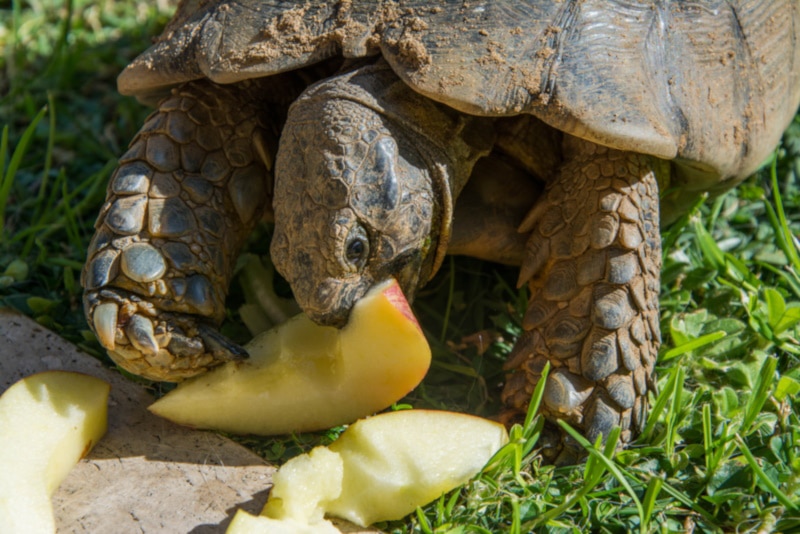
There are also some fruits that you should avoid feeding your turtle. These include:
- Citrus fruits
- Melons
The reason why citrus fruits are not the best choice for your turtle is that if they are overfed citrus fruit, it can lead to some health issues. There is a lot of sugar in citrus fruit, like oranges, and the citric acid can change the digestive tract’s pH levels. Melons, like watermelon, contain a lot of water. This can lead to diarrhea if fed in too large a quantity.
Final Thoughts
It’s safe for your turtle to eat mango, but it shouldn’t have it too often. Because of the sugar content it contains and the lack of a proper calcium-to-phosphorus ratio, mango should only be given as an occasional treat for your pet. As far as treats go, though, this fruit does have some excellent nutritional benefits for your turtle in the form of Vitamins C, K, A, and E, as well as plenty of fiber. Chances are your turtle will be a fan!
See Also:
- Can Turtles Eat Chocolate? Vet-Reviewed Facts & Safety Guide
- Can Turtles Eat Avocado? Vet-Reviewed Facts & Safety Guide
Featured Image Credit: toodlingstudio, Pixabay



